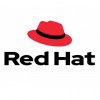Red Hat Enterprise Linux 9.4 - Now Generally Available
**Red Hat Enterprise Linux 9.4 - Now Generally Available!
**
To help organizations deploy applications and workloads quickly and reliably, Red Hat is pleased to announce the release of Red Hat® Enterprise Linux® (RHEL) 9.4 and the upcoming release of RHEL 8.10. Both versions offer organizations the flexibility and reliability to innovate across hybrid cloud deployments, from physical, virtual, private, public cloud, and edge. These new features and enhancements allow organizations to deliver workloads, applications, and services with increased efficiency and agility across multiple environments.
ACCELERATE.
Organizations can use RHEL to accelerate innovation, streamline operations, centralize development and management, and ensure consistent performance from the data center to the edge. These new technologies reduce the time and resources spent on maintenance, allowing organizations to focus on innovative projects. RHEL 9.4 and 8.10 introduces new Application Streams, offering multiple versions of user space components that can be updated more frequently without affecting the platform's stability. RHEL now adds new application streams, including Python 3.12, PostgreSQL 16, Ruby 3.3, PHP 8.2, Nginx 1.24, and MariaDB 10.11. These new versions bring various features and enhancements, such as improved performance and support for new tools and technologies. Additionally, the compilers for Rust, Go, and LLVM have been updated, along with a new version of Git and an update to Git-LFS.
OPTIMIZE.
The RHEL system roles included in a RHEL subscription automate common administrative tasks to provide consistent configuration and workflows at scale. These roles can now be used for edge systems and include features such as automating the configuration of Podman and fapolicyd for improved security. The Microsoft SQL Server role supports the installation and configuration of SQL Server 2022 and can run as a confined application for added security (9.4 only). A new snapshot role allows for creating and managing point-in-time snapshots of LVM storage volumes, and the Ad_integration role enables dynamic DNS updates for RHEL hosts integrated with Microsoft Active Directory. HA cluster users can now configure qdevice options and fencing topologies for unresponsive systems, and a new bootloader role can automate the configuration of kernel command line parameters for improved consistency and management of RHEL systems at scale.
The RHEL web console is a web-based tool that simplifies common configuration and management tasks with a user-friendly interface. It now supports external and live snapshots for virtual machines on RHEL 9.4 and above. Users can also generate Ansible/shell scripts for consistent kdump configurations on multiple systems. In tech preview (9.4 only), the web console can configure WireGuard for enhanced network security. Additionally, (9.4 only) it offers improved manageability of RHEL systems at the edge, including the ability to "pin" deployments and perform clean-up tasks.
PROTECT.
The new release of RHEL has improved features that simplify security and compliance management for both new system deployments and existing infrastructure. Passkey authentication (only in RHEL 9.4) is one of these features, which allows for passwordless and multi-factor authentication using FIDO2-compliant passkeys for centrally managed users. This is part of the Zero Trust Architecture (ZTA) security model, a US government initiative that will impact agencies and companies working for them by 2024. The Passkey authentication has been tested and verified with Yubico YubiKey™ devices. Yubico is the first vendor actively working with us to test and verify their YubiKey™ device. However, any FIDO2-compliant device should work with RHEL.
TRUST.
Organizations can trust and operate confidently thanks to RHEL 9.4 and 8.10. These versions also provide a new feature for RHEL for SAP that supports system administrators in meeting their recovery time objectives (RTO). This feature allows HA cluster support for scenarios involving SAP HANA index server crashes, which can quickly switch to a secondary node to mitigate downtime. This improves RTO and helps customers meet their SLAs.
In our latest release of RHEL, we are also introducing Podman 4.9. This update includes the ability to combine multiple command line options into a single "module" for easier management, support for Heredoc syntax in Containerfiles, a multi-arch build farm feature (tech preview), and the replacement of BoltDB with SQLite as the default database for new installations. Additionally, the Podman REST API now reports partial progress.
And last, RHEL 9.4 now supports virtualization on the ARM 64 platform. This feature was previously Technology Preview. Initial support is for RHEL 9.4 ARM 64 hosts running RHEL 9.4 ARM 64 guests, all using the 64k page size kernel.
Red Hat customers can directly access RHEL 9.4 from the RHEL product page.


